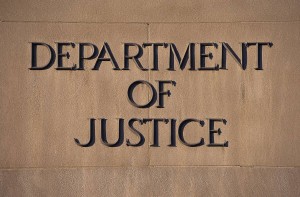LOS ANGELES
 A former Amtrak employee plead guilty to federal criminal charges this week for conspiring with her husband to steal nearly $1 million in COVID-19 pandemic-related unemployment insurance (UI) benefits, officials stated.
A former Amtrak employee plead guilty to federal criminal charges this week for conspiring with her husband to steal nearly $1 million in COVID-19 pandemic-related unemployment insurance (UI) benefits, officials stated.
Also, she fraudulently got more than $63,000 in sickness benefits while she worked at Amtrak.
Lizette Berrios Lathon, 45, of Moreno Valley, plead guilty to a three-count information charging her with conspiracy to commit mail and wire fraud, aggravated identity theft, and wire fraud.
Lathon’s husband, Kenneth Andrew Lathon, 48, also of Moreno Valley, plead guilty to a three-count information charging him with conspiracy to commit mail and wire fraud, aggravated identity theft, and unlawful possession of a firearm by a convicted felon.
 The latter two companies were located in Moreno Valley.
The latter two companies were located in Moreno Valley.
Lathon and her husband took advantage of the expanded eligibility for unemployment insurance benefits made possible by the Coronavirus Aid, Relief, and Economic Security (CARES) Act signed into law in 2020.
The CARES Act also established the Pandemic Unemployment Assistance program, which provided additional UI benefits to qualified individuals during the COVID-19 pandemic.
This includes people who did not otherwise qualify for UI, such as business owners, self-employed workers, independent contractors, and those with limited work history.
In some instances, Lizette Lathon submitted fraudulent applications with the California Employment Development Department (EDD) for UI benefits using names, Social Security numbers and dates of birth that she obtained from former clients of her tax preparation businesses.
 On the applications, she falsely asserted inflated income for the named claimants – many of whom had never lived in California – to receive the maximum benefit.
On the applications, she falsely asserted inflated income for the named claimants – many of whom had never lived in California – to receive the maximum benefit.
As a result of the fraudulent claims she filed, EDD authorized Bank of America to issue debit cards in the names of Lizette Lathon’s former clients, but the cards were mailed to addresses she and her family controlled.
She and her husband then used the debit cards to make cash withdrawals at ATMs and to make purchases at retail stores.
 During the conspiracy, which lasted from the spring of 2020 until March 2021, Lathon and her husband caused at least 44 fraudulent unemployment claims to be filed, resulting in losses to EDD and the United States Treasury of approximately $998,630.
During the conspiracy, which lasted from the spring of 2020 until March 2021, Lathon and her husband caused at least 44 fraudulent unemployment claims to be filed, resulting in losses to EDD and the United States Treasury of approximately $998,630.
Lizette Lathon, who was employed at Amtrak from 2000 to 2021, also schemed to defraud the Railroad Retirement Board (RRB) out of sickness benefit payments by filing forged and false claims that stated she was being treated by a medical professional for pain and anxiety.
Through this scheme, which lasted from September 2014 to January 2020, she fraudulently obtained about $63,047 in sickness benefit payments.
Kenneth Lathon admitted in his plea agreement to possessing a .22-caliber rifle and 12-gauge shotgun that bore no identifiable serial number despite his criminal history.
This includes felony convictions in California state court for theft, cocaine possession, and fraud.
U.S. District Judge Fernando M. Olguin scheduled an April 13. Lizette Lathon faces up to 42 years in federal prison.
Kenneth Lathon faces up to 32 years in federal prison.
This matter is being investigated by the United States Railroad Retirement Board Office of Inspector General; Amtrak Office of Inspector General; the United States Department of Labor Office of Inspector General; the United States Department of Labor Employee Benefits Security Administration; the California Employment Development Department; the Bureau of Alcohol, Tobacco, Firearms and Explosives; Homeland Security Investigations; and the United States Postal Inspection Service.
Assistant U.S. Attorney Byron R. Tuyay of the Riverside Branch Office is prosecuting these cases.
Anyone with information about allegations of attempted fraud involving COVID-19 can report it by calling the Department of Justice’s National Center for Disaster Fraud Hotline at (866) 720-5721 or via the NCDF Web Complaint Form at: https://www.justice.gov/disaster-fraud/ncdf-disaster-complaint-form.

